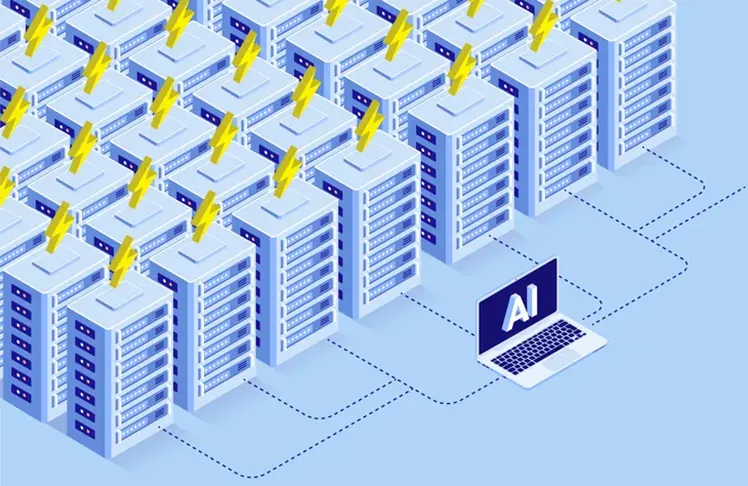
Not only could you hear the opposition to the Project Marvel data center plan at last week’s Bessemer, Alabama, city council meeting, you could see it too. The chamber was full of people wearing red, the color of solidarity with those organizing against a plan to bring a $14.5 billion “hyperscale” data center to a wooded property that runs along the city limits.
But despite all the red, and all the public comments from people who are concerned about the resources the data center could suck up and the potential for pollution, too, the city council voted 5-2 to rezone the property from agricultural to light industrial, marking a significant step forward for Project Marvel.
Black and White United in Opposition
Council members Donna Thigpen, who is white, and Cleo King, who is Black, were the only two “no” votes.
The city of 25,000 people is nearly 70% Black. In the more rural areas outside of Bessemer city limits, where most of the potential neighbors to the data center live, the population is much whiter. But both communities seem to be well represented in the opposition to the data center, which has raised a host of concerns not only for immediate neighbors but potentially for people across Alabama, too.
Secrecy, NDAs, and Few Public Answers
But answers to any questions about water usage, the potential for increased utility costs for all Alabama Power rate payers, environmental damage, and pollution from backup diesel generators have been hard to come by — if not impossible. Many Bessemer city council members signed NDAs with Logistic Land Investment, the developer behind the Project Marvel plan.
Representatives from the developer have been attending public meetings, but they haven’t been exactly forthright about answering these bigger questions that opposition to the data center has gelled around.
“We’ve gotten a clean bill of health from the site,” Brad Kaaber, a spokesperson for Logistic Land Investment, said at last week’s meeting. “Otherwise, we’d be looking at other sites.” But council member King told Inside Climate News that he never saw any such “clean bill or health” or other environmental impact report.
A Water-Thirsty Project
The company’s own filings for the planning approvals process have provided most of the specific details that are available about Project Marvel. That includes an estimate that the facility will need 2 million gallons of water per day. Logistic Land Investment has said it will pay the Warrior River Water Authority for capital improvements necessary for that water to be supplied to the site, but that’s about all the public detail available regarding the massive proposed water usage.
“We have a lot of promises from these developers. We’ve not been able to see any of them in writing,” Charles Miller, policy director of Alabama Rivers Alliance, told Al.com. “When it comes to zoning in Bessemer, there’s actually more specifics for how you can build a swimming pool in your backyard than for building a data center.”
It seems, too, that the general unpopularity of data centers is spreading as big projects like Colossus in Memphis and, now, Project Marvel, get more attention.
“I just visited Atlanta and spoke with two residents there, Tonya and Teshia, who both informed me of the noise that they hear throughout the night and day because of the data center,” Bessemer resident Dante Franklin said during the public comment period at last week’s council meeting. “We know that they used generators that contained diesel fuel, which is linked to lung cancer, cardiovascular diseases, and premature deaths.”












